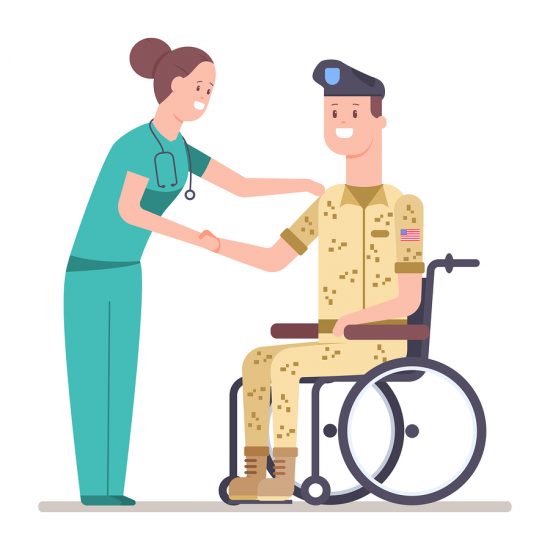How to Appeal a VA Disability Claim Denial

If you are a veteran that has been injured, or are facing an impairment that negates your ability to work full time, there’s a good chance your initial claim for disability payments from the VA will be denied.
Fortunately, there’s a process you can follow to appeal the decision:
File the Correct Form to Avoid a VA Disability Claim Denial
First and foremost, you’ll need to file a Notice of Disagreement with the VA. The notice should be filed on VA Form 21-0958. In the past, a Statement in Support of Claim was acceptable, but this has been eliminated.
You’ll have one year from the date of your denial letter to file the notice. It’s important to note the deadline is based on the date your decision was sent, not the date it was received.
Disclude the Details in the Notice of Disagreement
In your Notice of Disagreement, you may be tempted to outline why you feel the initial decision was wrong. It’s normal to be frustrated, especially when you feel entitled to your disability benefits and believe you were unfairly denied.
However, going into too much detail in your notice could limit your ability to appeal issues that you haven’t mentioned or don’t know about yet. The notice is used to reserve your right to appeal — not to share your argument. You’ll have an opportunity for that later.
In your notice, you should state that you disagree with the decision in your denial letter and that you wish to appeal that decision. Be sure to include the date of the denial letter. And, if you must include specific arguments, state that your list isn’t exhaustive.
How Should I Choose My Appeal for a VA Disability Claim Denial?
There are two different types of appeals you may file — an appeal to a decision review officer at your regional office or an appeal to the Board of Veterans Appeals. You can also specify whether the review officer should review your file and make a decision alone or request a personal hearing.
If the review officer denies your appeal, you can still take your case to the Board of Veterans Appeals. There are benefits and drawbacks to both options, so it may help to discuss your situation with an experienced attorney.
Follow the Process for a VA Disability Claim Denial
Once you’ve chosen an appeal type and written your Notice of Disagreement, file the notice at your regional office. If you requested a review officer, you’ll be asked for more information about your disagreement. The hearing, should you choose to have one, will be scheduled once this information has been provided.
If you requested a review through the Board of Veterans Appeals, you’ll receive a summary of the decision to deny benefits. It could take several months to arrive. Once it does, you’ll have 60 days to file VA Form 9 — which should identify your allegations and the benefits you’re seeking.
Again, it will take several months for your file to be transferred and for a hearing date to be set. Once you’ve met with a board member, a decision will be issued either granting your requested benefits or denying them. Your case may also be remanded back to your local office.
If you’ve been denied again and still wish to fight for benefits, there are additional options an experienced attorney can help you explore.
Contact an Experienced Veterans Disability Attorney for Assistance
Because the process of appealing is relatively complicated, you shouldn’t go through it alone. For assistance and representation, contact our experienced team at The Law Offices of F. Craig Wilkerson Jr. in Rock Hill, Fort Mill, Lancaster, or Union. Call (803)-324-7200 to schedule an appointment.
